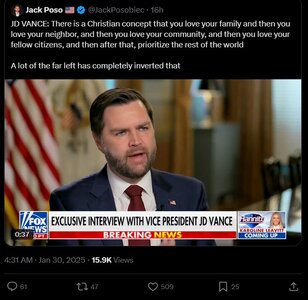superrific
Master of the ZZLverse
- Messages
- 11,762
It doesn't matter what the IRS says and to be honest, I'm not sure why the IRS continues to publish these regs.Last reply from me here.
“Issue advocacy crosses the line into prohibited partisan activities if it:
The Supreme Court has weighed in and said that non-profits have a constitutional right to engage in issue advocacy, which is what "vote pro-life" is considered. This is basically Citizens United and Wisconsin Right To Life.

Wisconsin Right to Life, Inc. v. FEC - FEC.gov
Summary of Wisconsin Right to Life, Inc. v. FEC



